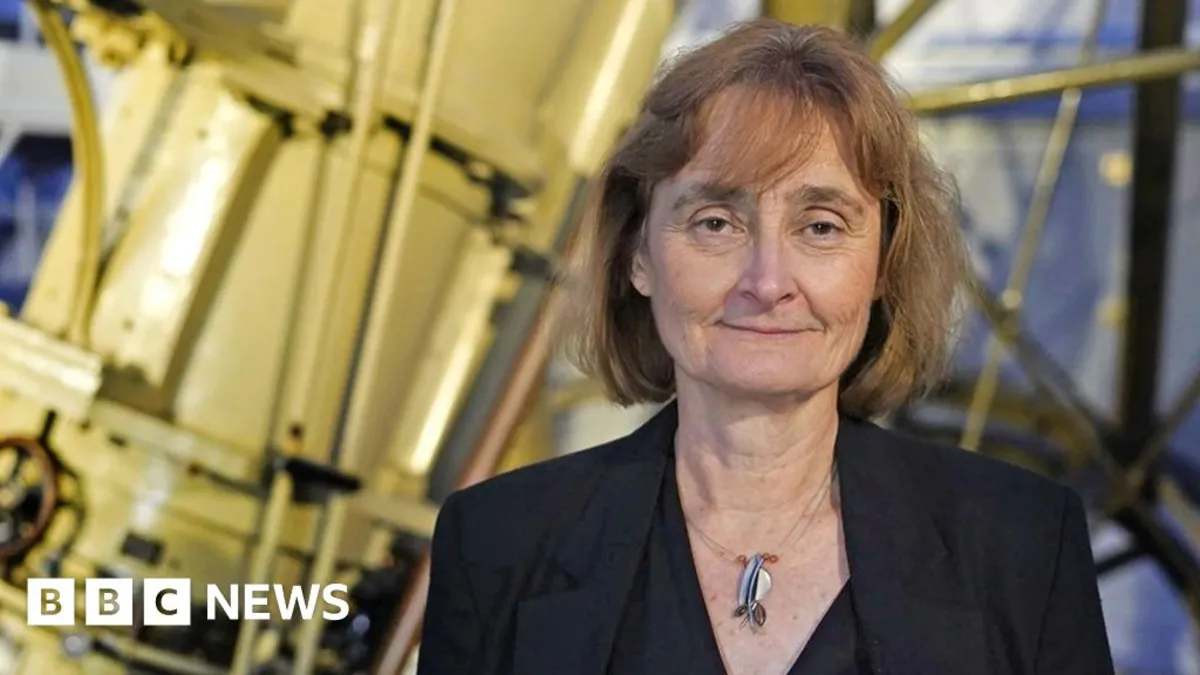
Prof Michele Dougherty, a renowned astronomer, has made history by becoming the first woman to be appointed as the UK's Astronomer Royal in its 350-year existence. Her journey into the world of space exploration began unexpectedly; she did not study science in secondary school but was instead inspired by her father’s telescope. This passion has led her to be a key player in sending probes to Jupiter’s icy moons, an endeavor that could reshape our understanding of life beyond Earth.
In an interview with BBC News, Prof Dougherty expressed her hope that her recent appointment as the official adviser to King Charles III on astronomical matters would encourage more women and girls to pursue careers in science. "I want to engage with the public, excite them about what we do in astronomy, but also make it clear how important what we do is to the UK economy," she stated. Her commitment to making astronomy accessible and engaging for everyone is palpable.
Prof Dougherty is currently involved in one of the most exciting space missions to date—a European Space Agency probe aimed at exploring the icy moons of Jupiter. The mission's goal is to determine if these moons have the potential to support life. With her characteristic enthusiasm, she remarked, "It would be surprising if there wasn't life in our solar system." This spirit of curiosity and optimism is what drives her work in astronomy.
Her fascination with space ignited at the tender age of ten when she, along with her sister and father, constructed a telescope. "That was when I got my first view of Jupiter and four large moons, never thinking I'd end up sending instruments on a spacecraft there," she recalled, reflecting on her childhood experience. Prof Dougherty's journey from a young girl peering through a homemade telescope to becoming the Astronomer Royal is nothing short of inspiring.
Remarkably, Prof Dougherty did not study science during her secondary education in South Africa. "I had a choice between schools. One of them taught science, but none of my friends were going to it," she explained. Choosing to stay with her friends, she pursued subjects outside of the scientific realm. However, her exceptional talent in mathematics led her to a science course at university, where she faced initial challenges but ultimately flourished. "I said yes to things I didn't know how to do, and I learned as I went," she shared, showcasing her resilience and determination.
The role of Astronomer Royal dates back to the establishment of the Royal Observatory in Greenwich in 1675, with John Flamsteed being the first to hold the position. Initially, the Astronomer Royal advised the king on navigation using the stars, but over time, the job evolved into one of the most significant scientific voices in the UK. By the 1800s, the role expanded to include advising on various government matters, and in the 20th century, it became focused on fostering international collaborations in astronomy.
For over 350 years, the title of Astronomer Royal was held by 15 men. However, the landscape is changing. Prof Catherine Heyman has served as the Astronomer Royal for Scotland since 2021 and expressed her delight at Prof Dougherty’s appointment. "For the last 350 years, the title of Astronomer Royal has been held by a white male astronomer, and that reflected what the astronomical community has looked like for the last few centuries," she noted. The appointment of two female Astronomers Royal across the UK signifies a positive shift towards diversity in the scientific community.
As Prof Dougherty steps into her role, she not only carries the weight of history but also the hope of inspiring a new generation of scientists. Her story exemplifies the importance of diversity and representation in science, proving that anyone, regardless of their background, can make significant contributions to our understanding of the universe.